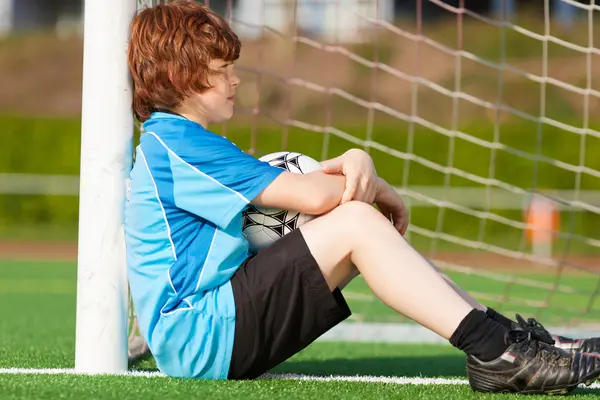
Sep 28, 2020 • 4 min read
Dealing With Disappointment if Sports Are Cancelled or Postponed
Posted in:
Not AGAIN!
Are you or your young athletes saying that about the postponement of fall sports as COVID-19 continues to leave its unwelcome mark in our lives?
This distress is being repeated in thousands of homes and schools across the country as many districts and states may be delaying the start of sports, drawing out the disappointment from a cancelled or shortened spring season.
My nephew is a varsity head football coach in California, and he joins with the entire state in his challenge to keep football players engaged until they are allowed to play in January 2021. Perhaps you, as coaches or parents, are facing the same dilemma. Here are a few ways to help your young athletes make it through the delay and keep up their motivation and enthusiasm.
Teach them to become a student of the game.
We all know that sports aren’t just physical. “Being a student of the game is an important part of the athlete’s career,” says Ernest T. Jones, Director of Athletics at Florida Memorial University. “But during the season it’s difficult with classwork, your personal life, and competitions to truly do that. Now they can invest hours and hours on becoming a better athlete and an expert in their sport.”
Give your athletes manuals, podcasts, and videos that will provide them instructions and inspiration to become a better player. In this “time off,” athletes have an opportunity to mentally improve at their sport in a way they didn’t have when they were in the thick of the season.
Work on mental toughness training.
Again, this is something that can get lost in the busy-ness of a season. But what better time than in an off season to do some brain training? There are many mental toughness trainers that can help your child or team. Either learn mental exercises from them or have them come share them with the team. When season hits, you will be able to refer back to the mental toughness techniques they learned.
Stay in training.
If your child or team wants to play come January, then they must be clear on this one thing: this is not time off. It is important for them to stay in training, whether it’s alone, or with a few other teammates, as COVID-19 restrictions in your school or community allow.
Even if your child only has one workout buddy it will help their motivation.
Give them ways to compete.
It may not be on the field or court, but competition in any form will help fill the void for athletes. Let them compete in skills contests, either separately or together. Let them compete for strength building. Let them compete for speed. Find ways for them to test themselves and compete with one another. Done with fun, this will foster motivation for them to stay engaged.
Stay connected.
As coaches, look for ways to get the team together, whether it’s in workouts or social time. As parents, look for opportunities for your young athletes to hang out or work out with teammates.
The uncertainty of youth sports for many areas of the country is real. In this time of upheaval, it’s important that kids feel some sort of consistency. That starts in the home, but it can also include fall teams that may not be playing. Coaches and parents should look for ways to care for their teams even when they are not playing. Not only is this a way of caring for the athlete as a whole, it is a way to give them hope and encouragement for a season that was yet again stripped away.
Janis Meredith is a family life coach who wants to help all parents raise champions. You can find out more at rcfamilies.com.

